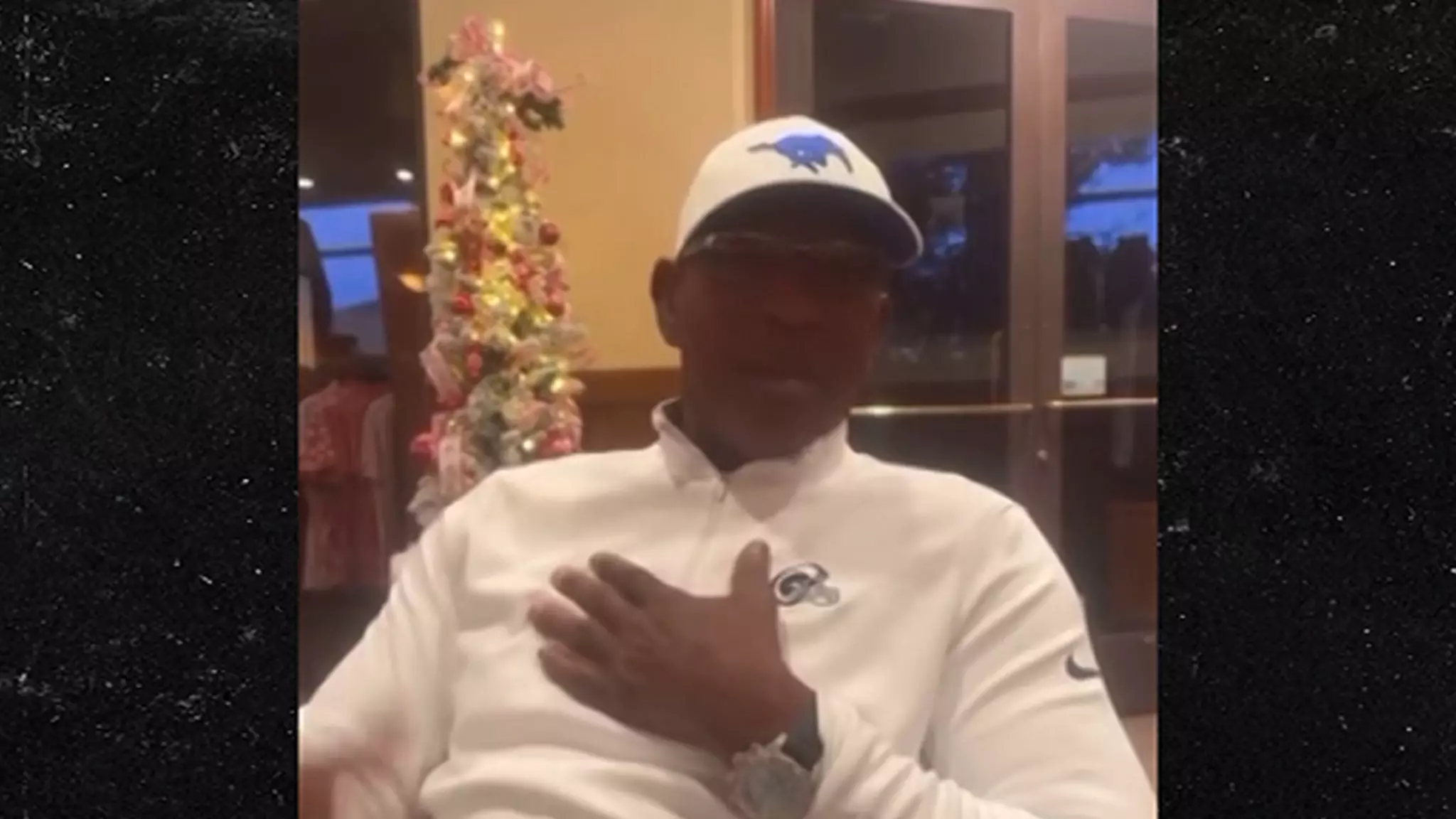In the realm of professional sports, records serve as both a testament to individual greatness and a point of contention among players and fans alike. One such record that has come under scrutiny recently is Eric Dickerson’s impressive single-season rushing record of 2,105 yards, established during a time when the game was characterized by different dynamics than today. Recently, amidst discussions concerning emerging talents such as Saquon Barkley, Dickerson found himself at the epicenter of a heated debate regarding the longevity of his record and the nature of athletic accomplishment.
Dickerson’s admission that he was not inclined to see his record broken by the younger generation has caused quite a stir, especially considering the vocal support from former players like LeSean McCoy. McCoy’s defense of Barkley highlighted a broader conversation surrounding the solidarity among running backs, emphasizing the importance of uplifting each other rather than fostering a competitive environment rooted in jealousy. Such sentiments point to a broader generational divide; where the older players often perceive records as hard-won triumphs, younger athletes may view them as benchmarks to aspire towards.
Records in professional sports often evoke varied emotional responses. While some may view the preservation of a record as an emblem of past excellence, others argue that the essence of sports lies in the continuous breaking and resetting of these benchmarks. In this light, Dickerson’s reluctance to welcome the idea of Barkley surpassing his record can be understood as a protective instinct toward his legacy. However, his acknowledgment of the modern game and his appreciation for Barkley’s talent speaks to his understanding that records are not simply about personal glory—they are part of a larger narrative within the sport.
Saquon Barkley, now donning the colors of the Philadelphia Eagles, has shown remarkable resilience and talent, driving conversations around his potential to break established records. However, Dickerson’s comments regarding the influence of game structure—like the extension of regular seasons—bring forth valid points about the fairness of direct comparisons across eras. His history as a record holder puts him in a unique position to observe the nuances of today’s game versus when he played, reminding fans and analysts alike to factor in context when evaluating performance.
As the Eagles prepare for their final regular-season game against the New York Giants, the fate of Dickerson’s record seems secure for the time being. Yet the dialogue initiated by Dickerson’s remarks has opened the door for essential conversations about respect, rivalry, and the evolution of records in an ever-changing sport. The future holds the promise of new athletes pushing the boundaries of what is possible, and perhaps, someone—someday—will break Dickerson’s long-standing mark. Until then, the legacy of greats like Dickerson remains a source of inspiration and a reminder of the incredible feats of the past. Through this lens, sports can transform from mere statistics into stories of resilience, unity, and the relentless pursuit of excellence.


Leave a Reply